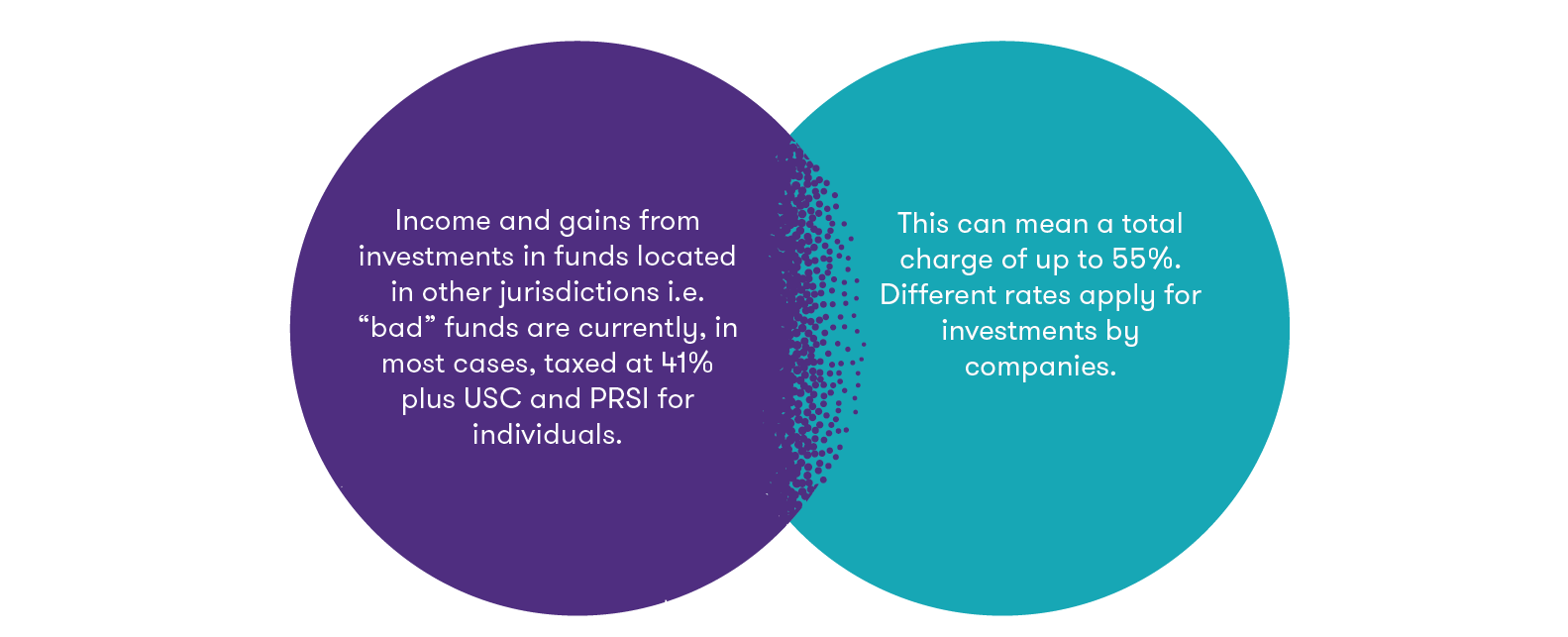Sign up for expert insights, industry trends, and key updates—delivered straight to you.

While they can be an attractive alternative to traditional investment options, investors should be aware of additional tax implications and reporting obligations.
The specific rules which apply to offshore funds are commonly known as the offshore fund regime. In general, regulated funds located in the EU, the European Economic Area (EEA) or OECD countries with whom Ireland has a Double Taxation Agreement (DTA) are referred to as “good” funds. Income and gains from such investments are currently taxed at 41% for individuals. The Universal Social Charge (USC) and PRSI do not apply. Different rates apply for investments by companies.
A “good” fund is deemed to be disposed of on the 8th anniversary of acquisition, and on each subsequent 8th anniversary. This means that tax becomes payable on unrealised gains even though the investor retains their interest in the fund. This requires particular attention from the investor and their broker, as failure to correctly account for deemed disposals can result in underpayment of tax and the submission of incorrect and/or incomplete tax returns.

The offshore fund regime does not apply to all fund investments. It does not apply unless there is a reasonable expectation that the investment in a fund can be realised within seven years of acquisition. If this is not the case then normal Income Tax and Capital Gains Tax (CGT) rules apply.
The table below briefly summarises some of the tax rates etc. which currently apply to offshore fund investments by individuals.

Due to the complexity of the rules which apply to offshore fund investments there is a greater risk of non-compliance than for more traditional investment options. Failure to correctly declare acquisitions, disposals, deemed disposals, income and other fund transactions can result in significant negative tax consequences for the investor including interest, penalties and Revenue Audit. Investors should take this into account when considering current or future offshore fund investments.
